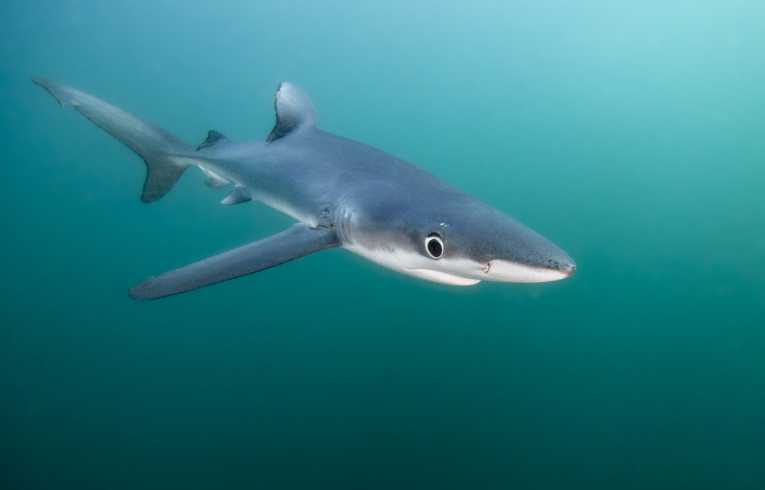Fisheries By-catch of Sharks: Options for Mitigation, is a paper released on 15th November by Aurelie Cosandey-Godin and Alexia Morgan.
The sharks of the North Atlantic and elsewhere have been caught by mistake (shark bycatch) for too long. With 860,000 blue sharks alone being killed and discarded and an equal number caught deliberately, The PEW Environment Group has come up with important but simple changes for fishing equipment:
[Use of squid is condemned and fish bait recommended to reduce catch of blue sharks particularly];
nylon leaders replacing wire
[Wire branch lines often target sharks / nylon can be bitten through by sharks];
and the shape of hooks
[C hooks are recommended as much less likely to catch shark.]
There were other ideas on shark repellent, depth of hook and mesh size for the nets, but more such conclusions are still under consideration.
These major modifications were suggested by Jill Hepp, global shark conservation manager for the PEW Environment Group.

Shark swimming at the surface via Shutterstock
In ICCAT (international tuna conservation group) in Istanbul, blue sharks, porbeagles and short-fin makos were among the most numerous in a 64,000 metric ton extra 'crop' of sharks. At this year's meeting, the Pew Environment Group is advocating a ban on retention of porbeagle and silky sharks; establishment of concrete, precautionary catch limits for shortfin mako sharks; and the prohibitions on wire leaders as well as the removal of shark fins at sea.
For years, the shark fin soup controversy has failed to make an impression on those who see the consumption of one small part of a fish as a delicacy.
In addition, certain species such as threshers, hammerheads, or oceanic white-tip sharks are better protected than the species most caught above but obviously more species are needing protection.
They are endangered in many cases, but more or less unprotected. Two of many such examples include sandbar shark (Carcharhinusplumbeus) and dusky shark (Carcharhinus obscurus). They increase their population sizes so slowly that they are considered particularly vulnerable.
Pelagic longline fisheries in the Atlantic are slowly changing their methods. Aurelie Cosandey-Godin and Alexia Morgan finish off their expansive review by reminding us, "The success of any bycatch solution will greatly depend on the species involved in the fishery and the dynamics of the fisheries, ecosystem, and governance regimes."










